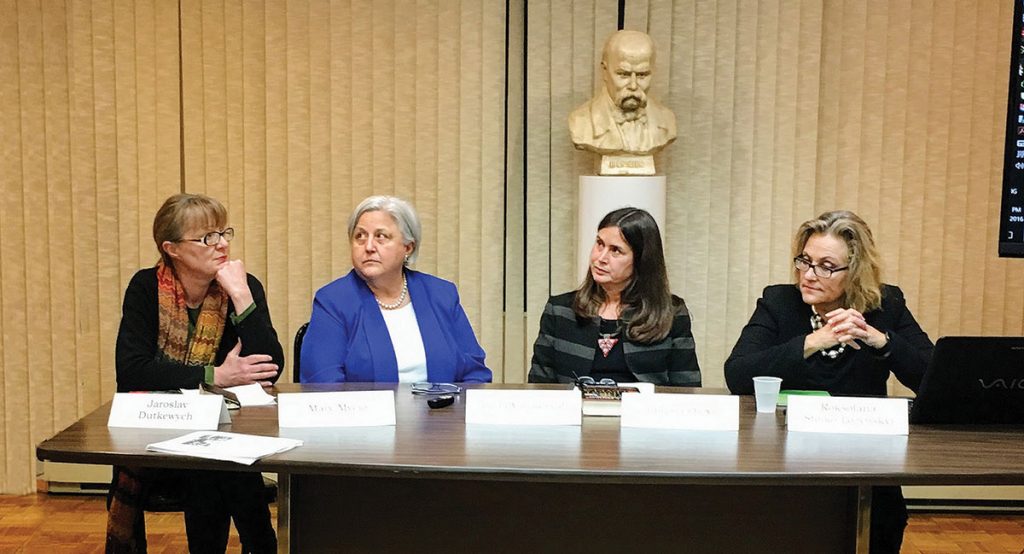The panel discussion “Eyewitnesses to Freedom’s Quest” featured (from left): Mary Mycio, Irene Jarosewich, Tamara Olexy and Roksolana Lozynskyj. NEW YORK – A special Ukrainian Historical Encounters Series titled “Ukraine at 25: A December 1 Remembrance” was held at the Shevchenko Scientific Society to commemorate the 25th anniversary of the December 1 national referendum, during...

